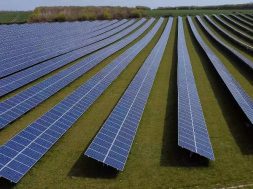
India Loses Wto Solar Appeal But May Find Other Ways To Subsidize Domestic Manufacturers
The World Trade Organization (WTO) upheld its earlier ruling and has rejected India’s appeal against Domestic Content Requirements (DCR) for manufacturing solar cells and modules and agreed that India’s localization rules discriminate against U.S. manufacturers. The result was not a surprise to anyone in the industry. A statement from U.S. trade representative said that U.S. solar exports have fallen by more than 90 percent since India implemented DCR rules. However, the reason for this fall has more to do with competition from cheaper Chinese panels than DCR rules. Chinese panels are being sold in India at the cheapest prices anywhere in the world – at or below $0.39 (~Rs.26)/watt.
The World Trade Organization had ruled against India’s domestic content policy for solar cells and modules in February of this year; India appealed the ruling in a bid to keep DCR rules in place for government procurement. The case against India was originally filed in 2013, following the announcement of DCR in Jawaharlal Nehru National Solar Mission (JNNSM) Phase II policy and after India decided to file an anti-dumping case against the U.S., China, Malaysia and Taiwan.
“The DCR policy has always been contradictory – the government doesn’t want cheaper imported panels, but wants solar power at the lowest possible price. Locally manufactured panels for DCR projects cost 10-20 percent more, and interest in these higher-cost projects has waned,” said Raj Prabhu, CEO of Mercom Capital Group.
In the short term, this will affect manufacturers who are overly dependent on the DCR market. In the long term, the effect should be minimal, as DCR projects are a small part of the projects auctioned; manufacturers now have clarity and can adjust their strategy accordingly in order to compete.
Currently, there is a pipeline of 925 MW of solar projects to be auctioned under DCR between JNNSM Phase II Batch 2, Batch 3, Batch 4, NTPC projects and SECI/Coal India Limited projects. About 1,167 MW of DCR projects were auctioned from last year under JNNSM Phase II Batch 2, Batch 3, Defence program and NTPC projects.
The Ministry of New and Renewable Energy (MNRE) called a meeting with the representatives of the solar industry recently to address their concerns regarding the domestic content requirement. In the meeting it was highlighted that there is unwillingness on the part of some states to participate in these projects as they are finding it too expensive; there was also a lack of developers interested in DCR projects. The Joint Secretary of MNRE mentioned proposals for a fixed amount in subsidies for domestic cell and module manufacturers based on manufacturing capacity. Other plans discussed included manufacturers getting viability gap funding (VGF) support for large projects.
In a tit-for-tat, India has complained to the WTO about eight U.S. states (Washington, California, Montana, Massachusetts, Connecticut, Michigan, Delaware and Minnesota) and the subsidies given to their renewable programs. Unlike India’s JNNSM, the United States does not have a central government run solar policy or a national Renewable Purchase Obligation.














